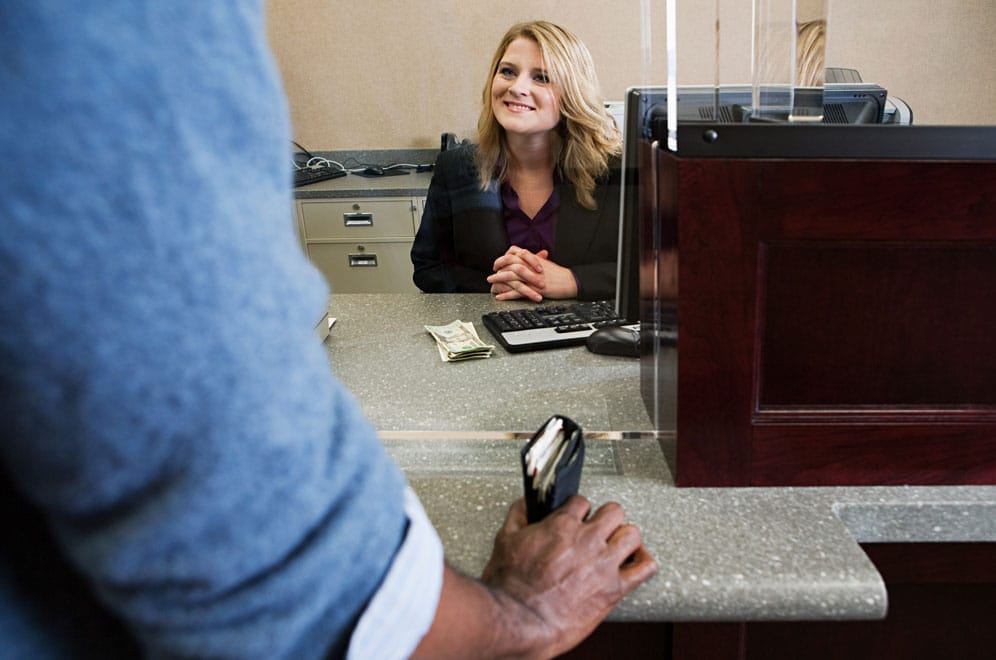Most banks could not handle a run if every customer demanded their deposits back simply because banks don’t keep everyone’s cash in the big safe in the back. Banks lend money at higher interest rates than they pay on their deposits. To backstop their liability, banks purchase bonds. Ideally every bank has enough assets to offset their liabilities.
You likely remember during the 2008 financial crisis that banks were subject to stress tests and were required to build up their capital reserves. Banks fail when assets fall below their liabilities. Such news prompts investors to withdraw their cash, which can quickly turn into a run on the bank. This is when the Federal Deposit Insurance Corporation (FDIC) steps in.
The FDIC is an independent government agency that maintains stability and public confidence in our nation’s banking system. In fact, no depositor has lost any insured funds as a result of a bank failure since FDIC insurance began in 1934.
Depositors are insured up to $250,000, per FDIC-insured bank, per ownership category. When a bank fails, the FDIC ensures the average customer will still receive their money—no need to jump out of windows like bankers reportedly did in the Great Depression. In extreme instances, like we recently saw with Silicon Valley Bank, the FDIC bailed out depositors beyond the $250,000 limit. This was not done out of the goodness of their heart—venture capitalists, startup companies, and many businesses would be unable to operate or make payroll, which would have led to a much more systemic problem.
However, average bank customers are not multi-million-dollar companies with tens of thousands of employees. If your deposits exceed the $250,000 insurance limit, your funds are at risk.
What do you do if you have excess cash in the bank? You have several options. The easiest is to open accounts at different bank institutions—not different branches of your bank. While this is not as streamlined as having all your money in one place, it does allow you to take advantage of each bank’s FDIC insurance. You can also open accounts with different ownership categories. Your individual accounts (e.g., checking, savings, money market, and Certificates of Deposit) should total less than $250,000. You can then own a joint account with your spouse or other individual. Joint accounts are covered per depositor, meaning a joint account of $500,000 is fully insured as each depositor is insured up to $250,000; however, remember with a joint account, the co-owner has equal rights to the money. Accounts that are payable on death (POD) can have up to five beneficiaries, and each beneficiary would be insured up to $250,000; therefore, an account with one owner and five unique beneficiaries is insured up to $1,250,000. Additionally, all revocable trust accounts owned by the same person at the same bank are added together, and the owner is insured up to $250,000 per beneficiary. The FDIC website has an Electronic Deposit Insurance Estimator that can help you calculate your coverage on a per-bank basis and determine how much is insured.
Another option is opening a brokerage account to gain access to money market mutual funds and CDs from different banks that should provide you with FDIC coverage. You could also invest in Treasury bonds—while not insured by the FDIC, they are backed by the full faith and credit of the U.S. Government.
Be aware there is a difference between a money market deposit account at your bank and a money market mutual fund, generally offered by a brokerage institution. Note that a money market deposit account is generally covered by FDIC insurance per ownership category while money market mutual funds are not insured or guaranteed. They are an investment, meaning you could lose money.
A money market fund is a short-term investment product designed to be a low-risk, low-return investment, which invests in short-term, fixed-income securities. We recommend using a money market fund that specifically targets U.S. Treasury bills, notes, bonds, and securities issued by U.S. government agencies.
The term “investment product” may have a lot of investors concerned that their money will be locked up for a certain amount of time, like a CD or Treasury that could lose money should you have to sell it before maturity. Money market funds intend to preserve your investment at $1 per share; however, they tend to pay more in interest than any interest-bearing account at a bank. Furthermore, money market funds are highly liquid, making them ideal for both emergency funds and savings. Should you need your cash quickly for an emergency, you can sell shares of the money market fund at any time before the market closes. Once the trade settles the following day, your brokerage company electronically transfers the cash via a wire or Money Link. A wire will put the cash in your account that same day, while a Money Link will be the next day.
At a minimum, investors need to beat inflation to grow their money. If you are keeping a significant amount of cash in the bank, we believe that you’d be better served by moving your money into a brokerage account and investing in a money market fund. The interest paid on a money market fund is usually higher than what a bank will pay on deposits.
Placing your cash in a money market fund in your investment account is separate from a cash account offered by your brokerage institution. If you have dividends from your investments going into your cash account for easy withdrawal, consider periodically moving cash you don’t foresee spending immediately into a money market fund to take advantage of a potentially higher interest rate.
If you have questions on the best management of your cash investments, the experts at Henssler Financial will be glad to help:
- Experts Request Form
- Email: experts@henssler.com
- Phone: 770-429-9166
Listen to the April 22, 2023 “Henssler Money Talks” episode.






